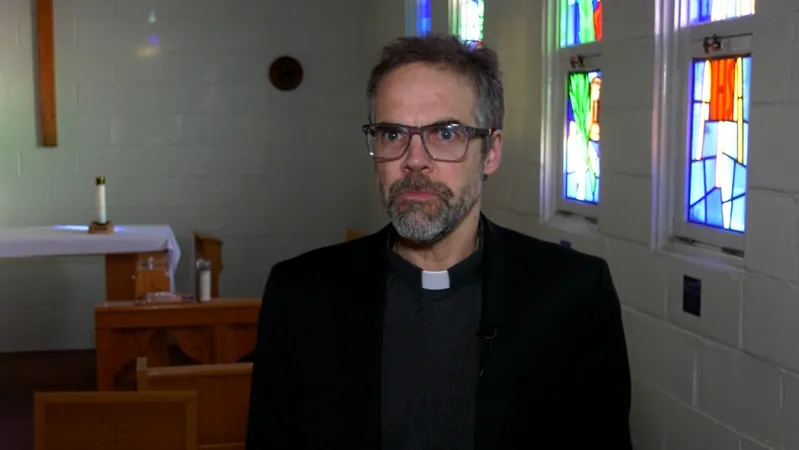
Canadian Reverend Critiques Switzerland's AI Jesus: A Divine Encounter or Just a Digital Gimmick?
2024-11-28
Author: Benjamin
Introduction
In a surprising twist of the day, Reverend Mark Kleiner from Christ Church Anglican in Saskatoon found himself reflecting on the controversial Swiss pilot project called AI Jesus—an artificial intelligence program created in a Catholic Church that allowed individuals to seek spiritual guidance from a digital version of Christ.
The Project's Overview
AI Jesus opened its virtual doors for a two-month trial, attracting around 900 visitors to the confessional booth where they posed questions on profound topics like love, war, fear, and death to this high-tech entity. The project, piloted in Switzerland, has been viewed by its creators as a success, yet not everyone shares their enthusiasm.
Reverend Kleiner's Concerns
For faith leaders such as Reverend Kleiner, AI Jesus is far from the transformative savior that churches need in today's world. "We will use technology here at the church like a little garnish, but in terms of addressing the real issues of the heart, I’m not convinced it meets the mark," he explains. He emphasizes that technology, despite its advancements, cannot replace the essential human connection and community that faith provides.
Using an analogy, Kleiner stated, "If I'm physically starving and have to choose between a ham and cheese sandwich or a hologram of that sandwich, I'm obviously going to choose the real thing." He expresses concern that despite the novelty of AI Jesus, it ultimately lacks the spiritual nourishment that congregations crave.
Technology and Faith
On the issue of technology in religious practice, Reverend Kleiner recognizes that it isn’t “inherently evil,” yet describes it as somewhat outdated in terms of fulfilling the core needs of faith communities. "People are incredibly lonely these days, and churches play a critical role in bringing people together to build relationships and meet each other’s needs."
Broader Perspectives
Interestingly, this perspective is echoed by University of Waterloo sociology professor Sarah Wilkins-Laflamme, who points out that churches have historically embraced new technology—whether through printed Bibles or televised sermons. "AI Jesus may just be the next phase in this evolution," she suggests. Many institutions are looking for innovative ways to engage younger generations, who often skip in-person worship services.
Demographics and Church Attendance
As for the demographics in Switzerland, it’s worth noting that around 33% of the population identifies as Catholic, but only about 17% attend church monthly, which illustrates a disconnect that such initiatives aim to bridge. In Canada, Catholic attendance stands at roughly 20%, with about 25% attending services at least once a month.
Sociological Implications
Sociologists are left to ponder the long-term significance of AI Jesus in the context of faith. Is it simply a flashy gimmick, or could artificial intelligence carve out a more prominent role in the realm of spirituality? Discussions among researchers regarding the project's future are ongoing, but a second coming of AI Jesus isn’t on the immediate horizon.
Conclusion
In a world increasingly dominated by technology, the question remains: Will digital deities become a staple of modern religion, or will they fade into obscurity, replaced by the heartfelt connections and genuine community that our faiths strive to cultivate?









 Brasil (PT)
Brasil (PT)
 Canada (EN)
Canada (EN)
 Chile (ES)
Chile (ES)
 España (ES)
España (ES)
 France (FR)
France (FR)
 Hong Kong (EN)
Hong Kong (EN)
 Italia (IT)
Italia (IT)
 日本 (JA)
日本 (JA)
 Magyarország (HU)
Magyarország (HU)
 Norge (NO)
Norge (NO)
 Polska (PL)
Polska (PL)
 Schweiz (DE)
Schweiz (DE)
 Singapore (EN)
Singapore (EN)
 Sverige (SV)
Sverige (SV)
 Suomi (FI)
Suomi (FI)
 Türkiye (TR)
Türkiye (TR)